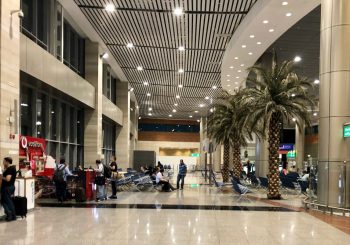Syrian media reports indicate that Israeli warplanes have conducted dozens of attacks across Syria, including in the capital, Damascus.
The UK-based Syrian Observatory for Human Rights (SOHR) reported over 100 strikes on military targets, including a research center linked to chemical weapon production.
Israel claims these actions aim to prevent weapons from falling “into the hands of extremists.”
The strikes come after Syrian rebels seized control of the capital, Damascus, marking a decisive end to Bashar al-Assad’s decades-long rule on Sunday 8 December.
Israeli Prime Minister Benjamin Netanyahu also announced that the Israel Defense Forces (IDF) have temporarily occupied a demilitarized buffer zone, asserting that the 1974 disengagement agreement with Syria has effectively “collapsed.”
Netanyahu emphasized the necessity of securing Israel’s borders, stating, “We will not allow any hostile force to establish itself on our border.”
This move comes amid fears of instability in Syria, particularly concerning the control of Assad’s alleged chemical weapons arsenal.
The U.S. conducted a significant series of airstrikes against Islamic State (ISIS) targets on Sunday 8 December, warning the group not to exploit the current upheaval in Syria
The operation involved “dozens” of strikes on over 75 locations, targeting ISIS operatives and camps with B-52 bombers, F-15 fighter jets, and A-10 attack aircraft.
General Erik Kurilla, head of Central Command, stated that all organizations in Syria would be held accountable if they collaborated with or supported ISIS.
President-elect Trump, who has previously sought to withdraw U.S. forces from Syria, described the situation as a “mess” and advised against U.S. involvement.
Senator Jeanne Shaheen (D-N.H.) expressed the necessity of maintaining U.S. troop presence, highlighting their role in training Kurdish militias and conducting airstrikes against Iranian-backed forces.
President Joe Biden assured that U.S. personnel would be protected and that the mission against ISIS would continue, including the security of detention facilities holding ISIS fighters.
The Assad family ruled Syria with an iron fist for more than 50 years, with Bashar al-Assad succeeding his father, Hafez, in 2000.
The civil war began in 2011 when Assad brutally engaged violently with the Syrian uprising, leading to a conflict that has claimed over half a million lives and displaced 12 million people.
The recent offensive by the Islamist militant group Hayat Tahrir al-Sham (HTS) and allied factions has rapidly altered the power dynamics in Syria.
HTS launched a major offensive that began on 27 November, swiftly capturing Aleppo and moving south to Damascus as government forces collapsed.
Assad has been reportedly granted asylum in Moscow. As world powers react, the U.S. has expressed cautious optimism about the collapse of Assad’s regime while warning of the risks posed by Islamist factions.
Regional leaders, including those from Turkey and Iraq, have called for dialogue and a pluralistic approach to governance in Syria.
With Israel reinforcing its positions in the Golan Heights, the geopolitical landscape is evolving rapidly, raising concerns about potential conflicts in the region.







Comments (0)